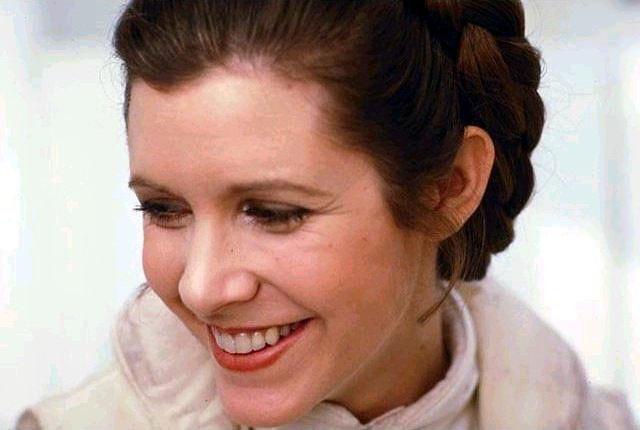This year has been bad. Globally, politically, socially, et cetera. But has it been the Worst Year Ever that Buzzfeed and the listicle brigade would have us believe? Maybe, but probably not. A lot of bad things have been concentrated in 2016, so many that people have finally sat up and taken notice. But the thing dominating Year In Review pieces is the loss of so many public figures and celebrities.
The first half of this year is a bit hazy in my memory, as first halves of years tend to be; a blur from the New Year to the start of the summer break. However, one of my clearest memories from this period is waking up to a pitch black rainy morning in January, groggy and disorientated, for my first 8.30 lecture of the term and turning off the alarm on my phone to see the notification from BBC News that David Bowie had passed away. This, the starting point for this so-called Terrible Year, is the celebrity death that saddened me the most, until Carrie Fisher passed away a few days ago.
I grew up listening to David Bowie, my mum’s Hunky Dory and Aladdin Sane CDs playing around the house and on long car journeys, singing along before I really knew who I was singing along to. The term “household name” has never felt more accurate. People like that are like a chair or a rug in your living room: you don’t always notice that they’re there, but once they’re gone the space they leave behind is tangible. When people like Bowie or Prince or Leonard Cohen die, it’s a shock. They are people who have transcended their industries; they are constants in a landscape of culture that is continually shifting and changing.
how do you deal with grief if you’ve never met the person you’re mourning?
But how do you deal with grief if you’ve never met the person you’re mourning? How do you process the loss of someone who didn’t know you existed? The internet and social media makes this easier than ever before. It makes this kind of grief a collective thing, a public thing, a shared thing.
Twitter has made grief an instantaneous, real-time reaction. The inevitable onslaught of cyber mourning often makes it feel like there isn’t time to reflect and take time out; declarations of heartbreak are out there immediately in all their 140 character glory. There’s the issue of “grief policing” – when grief is made public, it’s open to scrutiny, as people tell you how you should or shouldn’t express it. American bakery chain, Cinnabon, apologised for and deleted a tweet that came under fire in the wake of Carrie Fisher’s death, claiming Fisher would “always have the best buns in the galaxy.” Cynical marketing ploy? Genuine tribute? Some argued Fisher would have found it funny, some said it was disrespectful. Others said it was just a case of people being oversensitive.
Some might argue that this public outpouring of grief is distasteful, that it’s inappropriate, that it’s pointless. It’s true that most people didn’t “know” the many celebrities who passed away this year. But to dismiss the grief of their fans is to dismiss the work these people did when they were alive. It dismisses the impact of their art; the way art serves as memory, the way the loss of an artist can feel so deeply personal.

Image: Flickr.com
Sometimes this public display can feel a little overwhelming, each person trying to outperform the next. Sometimes it’s just people wanting to express their sadness at the death of someone who meant a lot to them. Grief is personal.
Why should it be public, then? Tweets and hashtags are almost the 21st century version of leaving flowers at the roadside – something that was seen as distasteful a few decades ago but is now the norm in the wake of tragedy.
But something public is something shared. Too often we bottle things up and sometimes it’s nice to see an outpouring of fond memories and positive comments about a beloved public figure. This isn’t something we see enough when people are alive, but these fond eulogies are a way to process and a way to cope.
But still, it’s okay to log off sometimes.


